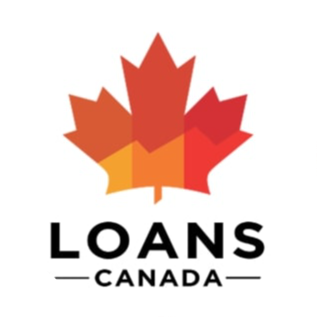It’s hard enough for the average Canadian to get approved for a mortgage, but it’s even more challenging for newcomers to Canada.
In 2021, more than 405,000 people became permanent residents, with even higher numbers expected through 2024. That’s the most immigrants Canada has ever seen in a single year, and many of these newcomers share the common goal of buying a home.
But without any credit history to support a mortgage application, it can be difficult to secure a home loan. Fortunately, there are several products to use and steps to take that can immigrants build Canadian credit to qualify for a mortgage.
How immigrants can build credit to qualify for a mortgage
When it comes to building credit as a newcomer to Canada, there are five key factors to focus on, including the following:
Payment history
Your payment history has the most weight when it comes to your credit and accounts for approximately 35% of your credit score. Timely bill payments will help you build excellent credit, which is why it’s essential that all your debt obligations are met every billing cycle.
Credit utilization ratio
Also referred to as your ‘debt-to-credit’ ratio, your credit utilization ratio is a measurement of your current debt relative to your available credit and accounts for about 30% of your credit score. Generally speaking, you should try to keep this ratio as low as possible for optimal credit health.
Credit history
Your credit history refers to the amount of time that you’ve been working towards building your credit and makes up about 15% of your credit score. As a newcomer to Canada, you’ll need to start building credit from scratch, even if you had a healthy credit profile in your native country. Once you arrive in Canada, it’s important to take steps right away to start building credit, which will open more doors to financial products in the future, such as mortgages and car loans.
Credit checks
When you apply for a loan or credit product, the lender will conduct a credit check, which can temporarily cause your credit score to dip. Your credit report may also be checked when you enter a lease agreement. Credit checks typically account for around 10% of your credit score.
A few credit inquiries may not be too detrimental to your credit score, but several within a short period of time can be. As such, it’s a good idea to limit the number of instances in which your credit report may be checked.
Public records
Negative items on your credit report, such as bankruptcies, consumer proposals, collections, and lawsuits, can also negatively affect your credit score and can remain on your report for years. Public records generally account for about 10% of your credit score.
Products to help new immigrants build credit
With no credit as an immigrant, it can be difficult to secure traditional credit products. That said, there are a few products available to those without credit that can help build credit when used wisely.
Use a secured credit card or newcomer credit card
Shortly after you arrive in Canada, apply for a secured credit card. While traditional unsecured credit cards require a good credit score to qualify, secured credit cards are relatively easy to get approved for. There’s no need for good credit or any credit at all, and modest incomes qualify.
With a secured credit card, you make a deposit upfront that acts as collateral. Every timely payment you make will be reported to the credit bureaus and recorded on your credit report. In turn, this will help build good credit over time.
Have your rent reported
Rent payments typically aren’t reported in Canada, however, you can ask your landlord to report your rent payments to Equifax through the Landlord Credit Bureau (LCB). To do so, you and your landlord must register with the LCB. This can help you build a payment history which can help improve your credit scores.
You can also have your rent payment contribute to your payment history by paying it through your credit card using services such as Plastiq. Keep in mind, however, that these companies typically charge a fee for their services.
Get a cell phone
Many mobile phone carriers will report your cell phone payments to the credit bureaus, as long as you have a postpaid cell phone plan and not a prepaid one. Timely cell phone bill payments can show that you are responsible with your monthly recurring debts. Moreover, it can help build your payment history which can positively affect your credit scores.
Get a savings loan
A savings loan is designed to help you build your savings and credit score, regardless of your credit history. With this type of loan, a specific payment amount is deposited into a secured account. Then, you’ll make payments on a set schedule toward this amount based on your budget.
Each on-time payment is reported to the credit bureaus, which will help build your credit score over time. Meanwhile, your savings will grow, which you can tap into in the future.
Can you transfer your credit from another country to Canada?
Regardless of your credit health in your home country, your credit history will not follow you to Canada. As a newcomer, you will have to build your credit from scratch.
According to the credit bureaus, you’ll be considered to have no credit. That’s why it’s crucial to start building your credit as soon as you immigrate to Canada.
What do you need to get a mortgage as an immigrant?
One of the goals you may have when you move to Canada is to eventually become a homeowner. But to buy a home, you’ll likely need a mortgage to give you the financial help to make this big purchase.
In order to qualify for a mortgage in Canada, you’ll need to meet certain key criteria, including the following:
Credit score. Building good credit will help improve your chances of getting approved for a mortgage, which is why it’s important to start establishing credit immediately after moving to Canada. However, there are private mortgage lenders who may be willing to extend a mortgage to newcomers based on many other factors besides their credit score, such as their income and assets. In fact, many banks also offer special mortgages for newcomers with no credit history.
Income. Lenders want to make sure your income is sufficient to cover your mortgage payments, so you may need to prove your income level. This will also give lenders the insight needed to determine how large of a loan they’re willing to offer you.
Employment stability. Some mortgage lenders may require at least two years’ worth of employment history for newcomers before extending a home loan. This tells the lender that you are capable of holding down a job. However, if you don’t have this type of work history, some lenders may require a larger down payment in lieu of steady employment. Other conditions may apply.
Residency. Most lenders that offer special newcomer mortgages require you to be a confirmed permanent resident of Canada in order for you to be eligible for a mortgage as an immigrant. That said, other mortgages are available to non-residents with different eligibility criteria.
Down payment. The minimum down payment for a home in Canada is 5%. However, the amount required to qualify for a mortgage as a newcomer will depend on the lender, their requirements, your employment history and your immigration status.
How to get a mortgage as a newcomer
To get approved for a home loan as a newcomer to Canada, follow these steps:
Find out what you can afford
Calculate your mortgage affordability before you start looking for a home and applying for a mortgage. There are plenty of mortgage calculators available online to give you an idea of what you can afford based on your current financial profile. In the meantime, start saving for a down payment.
Build good credit
Use one of the above-mentioned products and strategies to start building healthy credit right away. A good credit score will maximize your chances of mortgage approval.
Get pre-approved for a mortgage
A mortgage pre-approval will give you a clear picture of how much you can afford to spend on a home purchase. Based on your finances and credit, your lender will tell you how much you can borrow, what interest rate you qualify for, and what your estimated monthly payments will be. You can then use your mortgage pre-approval letter when shopping for a home.
Work with a real estate agent
When you’re ready to start house hunting, find a local real estate agent who is familiar with the area you’re looking to buy in. The agent will find homes that fit within your budget, negotiate to get you the lowest price and help finalize the contract to seal the deal.
Final thoughts
A lack of credit can be a major obstacle to getting a mortgage as a newcomer. Luckily, there are different things that you can do as a newcomer to build your credit and strengthen your mortgage application when you’re ready to buy a home in Canada.
 LoansCanada
LoansCanada






